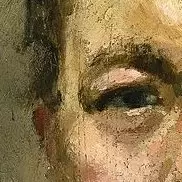*removed externally hosted image*
- 0 Posts
- 69 Comments
- Evil_Shrubbery@lemm.eeto
 ·5 months ago
·5 months agoAlso -80% on GOG.
8€ for the Royal Edition (& for full ownership, just one cent more than on Steam).
- Evil_Shrubbery@lemm.eeto
 ·5 months ago
·5 months agoThat could have saved several third world countries, especially people in healthcare.
Wait ... can you expand a bit more (on the subject, not the asshole)?
My moms chonky pussy needs asshole styling (mostly bcs of ridiculously long pubes & beard) and I'm not sure if it's the right thing to do.
- Evil_Shrubbery@lemm.eeto
 ·6 months ago
·6 months agoIn the end, Trelawny plucked Shelley’s carbonized heart from the ashes as a gruesome souvenir for himself, but he was eventually persuaded to give it to Mary, who preserved the relic for the rest of her life. Contrary to various reports, the heart was not returned to Shelley’s grave or buried with Mary, in 1851. It was interred with their son, Percy Florence Shelley, in 1889, the very year that Fournier painted The Funeral of Shelley.
That's pretty metal.
- Evil_Shrubbery@lemm.eeto
 ·6 months ago
·6 months ago(made me think of Miasmata)
I love Solenes website (and contents), this should be the norm.
And also originally they only credited the narrator.
We did so much evil & damage in our best days, but I have no doubt we will manage to surpass that.
Also in 1957 he made an experimental model of a wearable automatic radio landline extender ("radiophone"), called LK-1. His device consisted of a stationary module and a portable handset. LK-1 was reportedly 3 kg in weight, 20–30 km operating distance, and 20–30 hours of battery life. Leonid Kupriyanovich patented this landline extender in 1957 (author's certificate № 115494, 1.11.1957). The stationary module, in accordance with author's description, could serve several customers. In 1958, Kupriyanovich purportedly made the new experimental "pocket" model radio phone. This phone supposedly had 0.5 kg weight. To serve more customers, Kupriyanovich proposed the device, named it as a correllator.
In 1961 Leonid Kupriyanovich presented a pocket automatic radio phone which could fit in the palm of a hand. This pocket mobile phone weighed only 70 g and had 80 km operating distance. Kupriyanovich told correspondents of the АПН news agency that in the USSR the production of this device was planned. He also reported the plans for the construction in Moscow of ten base stations for creation of a mobile communication network. The first station in Moscow was supposedly planned to be constructed in Mazilovo.
It already did make it this way, and it's late stage capitalism, it's not going much further, unlike climate change.
- Evil_Shrubbery@lemm.eeto
 ·6 months ago
·6 months agoEmergency Invite
You may not like it, but that is what peak humanity looks like - an infestation of 8 billion parasites mindlessly working for destruction.
Historians will note that the plastic boundary in sedimentary rock coincides with the 6th mass extinction event.
I do the same. Hoping I am just a part of the program.
- Evil_Shrubbery@lemm.eeto
 ·7 months ago
·7 months agoOh, so they differ substantially, didn't know that (but makes sense bcs of the variety they produce). I'm not anti-ban (the work itself doesn't seem like it's worth the end product anyway), I would have just expected more regulation (safety, or just a ban in crystalline silica perhaps) instead of an overall ban. But that's just the EU in me talking, a ban is at least much clearer & in this case quicker to get passed.
Edit: actually safe work Australia already drafted guidelines, I guess they didn't catch on
Workplace exposure standard for respirable crystalline silica: The eight-hour time weighted average workplace exposure standard (WES) for respirable crystalline silica (RCS) is 0.05 mg/m3. This means that your workers must not be exposed to levels of RCS greater than 0.05 mg/m3 over an eight hour working day, for a five day working week.
Edit2: EU does have a directive in place but it's not yet implemented into law (like a 'delegated regulation' or a demand to incorporate it in local laws) + its still evolving so no actual limit numbers (or a complete ban) yet. EU directives usually work in such a way that at first they gather industry knowledge & best practices (via mandated reporting) that they then implement into law (more or less strict depending on the end goal, but in administration sense compatible with the current industry capabilities - I'm actually proud of the efficiency & lifecycles of such a system).
- Evil_Shrubbery@lemm.eeto
 ·7 months ago
·7 months ago... someone correct me if I'm wrong, but this just sounds like some random local corruption story, right?
Like, instead of passing & enforcing worker safety laws they just ban the (safe) product? The same type of diseases can workers get from eg processing cotton, flower, cement, and any fine-dusty thing really. And such things can be managed with safety precautions & exhaust filters (to not affect the broader local area over the years of dust buildup).
The logical exceptions are things like asbestos where even the end product crumbles into dangerous particulates (that are even more irritating/cause serious problems at much lower quantities).
Then again it really saddens me that we don't invest more into like cellulose based materials (buildings, cutlery, bags, windows, cars, medical equipment, ... limitless potential, can be made sustainable, & has the prospect of doing something good in the long run).
Also with the same logic Australia could ban other things as well, like cocoa/chocolate imports, much of the fashion industry (dyes), and above all else - fossil fuels.
As for the replacement materials for countertops - bamboo (pressed & oiled?) is great!
- Evil_Shrubbery@lemm.eeto
 ·7 months ago
·7 months agoTizen update imminent!
(I'm very grateful for the project tho)









Nerd².
That's how we science.